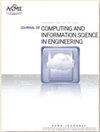在开发有关下一代网络物理系统的教育计划和课程时需要考虑哪些因素?
IF 2.6
3区 工程技术
Q2 COMPUTER SCIENCE, INTERDISCIPLINARY APPLICATIONS
Journal of Computing and Information Science in Engineering
Pub Date : 2024-06-14
DOI:10.1115/1.4065735
引用次数: 0
摘要
我们所处的时代,新事物的出现速度远远快于对它们的深刻理解。这句话尤其适用于下一代网络物理系统(NG-CPS)的研究和大学生教育。这一系统范式的快速发展,预示着有关这一系统家族的研究和教育范式将发生快速而全面的变化。然而,这种情况尚未发生。为了寻求充分的解释,本文回顾了当前的文献,并试图阐明 NG-CPS 领域最重要的最新发展。作者的主要假设是,在学术知识的获取和传播过程中,研究与教育应和谐共存,而 NG-CPS 的学术教育则应根据可辩护的未来愿景来组织和开展。结合广泛的文献研究成果、预测性批判思维和个人经验,这篇基于评论的立场文件首先讨论了当前的社会技术科学环境、相关利益方以及真正以系统为导向的教育的需求和两种方法。然后,它集中讨论了单学科和跨学科研究的公认局限性,以及针对下一代计算机系统的超学科方法和跨学科知识生成。作为主要贡献,本文(i) 确定并分析了最新的理论、工程和技术发展,(ii) 揭示了主要趋势及其可能产生的重大影响,(iii) 提出了一些发人深省的发现,并就可取的行动提出了建议。本文章由计算机程序翻译,如有差异,请以英文原文为准。
What to consider at the development of educational programs and courses about next-generation cyber-physical systems?
We live in an age in which new things are emerging faster that their deep understanding. This statement in particularly applies to doing research and educating university students concerning next generation cyber-physical systems (NG-CPSs). The fast evolution of this system paradigm would have expected a rapid and comprehensive paradigmatic change in research and education concerning this family of systems. However, this has not happened yet. Seeking for a sufficing explanation, this paper reviews the current literature and makes an attempt to cast light on the most significant recent developments in the field of NG-CPSs. The main assumptions of the authors are that research and education should appear in harmony in academic knowledge acquisition and distribution processes, and that academic education of NG-CPSs should be organized and conducted according to a defendable future vision. Combining the results of a broadly-based study of the literature with prognostic critical thinking and personal experiences, this review-based position paper first discusses the current socio-techno-scientific environment, the involved stakeholders, and the demands and two approaches of truly systems-oriented education. Then, it concentrates on the recognized limitations of mono- and interdisciplinary research, and on supradisciplinary approach and transdisciplinary knowledge generation for NG-CPSs. As main contributions, the paper (i) identifies and analyzes the latest theoretical, engineering, and technological developments, (ii) reveals the major trends and their presumably significant implications, (iii) presents a number of thought-provoking findings and makes propositions about the desirable actions.
求助全文
通过发布文献求助,成功后即可免费获取论文全文。
去求助
来源期刊
CiteScore
6.30
自引率
12.90%
发文量
100
审稿时长
6 months
期刊介绍:
The ASME Journal of Computing and Information Science in Engineering (JCISE) publishes articles related to Algorithms, Computational Methods, Computing Infrastructure, Computer-Interpretable Representations, Human-Computer Interfaces, Information Science, and/or System Architectures that aim to improve some aspect of product and system lifecycle (e.g., design, manufacturing, operation, maintenance, disposal, recycling etc.). Applications considered in JCISE manuscripts should be relevant to the mechanical engineering discipline. Papers can be focused on fundamental research leading to new methods, or adaptation of existing methods for new applications.
Scope: Advanced Computing Infrastructure; Artificial Intelligence; Big Data and Analytics; Collaborative Design; Computer Aided Design; Computer Aided Engineering; Computer Aided Manufacturing; Computational Foundations for Additive Manufacturing; Computational Foundations for Engineering Optimization; Computational Geometry; Computational Metrology; Computational Synthesis; Conceptual Design; Cybermanufacturing; Cyber Physical Security for Factories; Cyber Physical System Design and Operation; Data-Driven Engineering Applications; Engineering Informatics; Geometric Reasoning; GPU Computing for Design and Manufacturing; Human Computer Interfaces/Interactions; Industrial Internet of Things; Knowledge Engineering; Information Management; Inverse Methods for Engineering Applications; Machine Learning for Engineering Applications; Manufacturing Planning; Manufacturing Automation; Model-based Systems Engineering; Multiphysics Modeling and Simulation; Multiscale Modeling and Simulation; Multidisciplinary Optimization; Physics-Based Simulations; Process Modeling for Engineering Applications; Qualification, Verification and Validation of Computational Models; Symbolic Computing for Engineering Applications; Tolerance Modeling; Topology and Shape Optimization; Virtual and Augmented Reality Environments; Virtual Prototyping

 求助内容:
求助内容: 应助结果提醒方式:
应助结果提醒方式:


